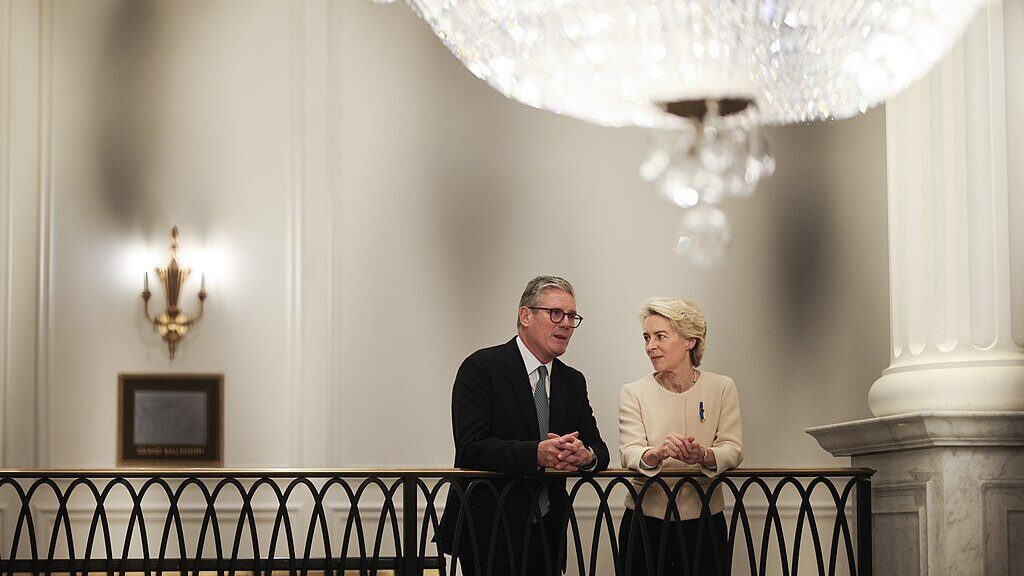
Prime Minister Keir Starmer speaks with Ursula von der Leyen, president of the European Commission, as they attend the United Nations General Assembly
Photo: Lauren Hurley / Number 10, OGL 3, via Wikimedia Commons
Sir Keir Starmer is in Brussels today for his first bilateral meeting with European Commission president Ursula von der Leyen since he became prime minister in July. This official engagement is further evidence of the Labour government’s growing threat to British voters’ 2016 decision to leave the European Union.
Long-time Remainer Starmer, who once fought for the Brexit referendum to be overturned, looks set to agree to a ‘youth mobility scheme’ during upcoming negotiations with Brussels. One migration expert told The European Conservative that such a deal is “literally synonymous with freedom of movement, an institution that the British public steadfastly rejected in 2016.”
Senior Labour figures have long advocated for a youth mobility scheme, which would allow European adults under the age of 30 to remain in the UK (and vice versa) for a certain period of time. A cagey Starmer has, up till now, responded that there are “no plans” to accept such a deal, which hardly constitutes its total rejection.
But now Brussels has suggested it is willing to reduce the amount of time European migrants could stay in Britain, and to improve the scheme’s optics—without any substantive revisions—by changing its name, British government ministers have accepted that a deal could very well be made. That’s in spite of home secretary Yvette Cooper’s reported view that the plan would “not be compatible” with pledges to bring down net migration. Not that the government is taking these pledges seriously, anyway.
Starmer could hardly contain his excitement about “resetting” UK-EU relations ahead of his talk with von der Leyen, saying that
the UK is undeniably stronger when it works in lockstep with its closest international partners. This has never been more important—with war, conflict and insecurity all knocking on Europe’s door [emphasis added].
We will only be able to tackle these challenges by putting our collective weight behind them, which is why I am so determined to put the Brexit years behind us and establish a more pragmatic and mature relationship with the European Union .
Formal negotiations, which are set to begin next year, are bound to result in the UK bowing down to Brussels and accepting their rules. It is certainly difficult to picture the opposite being the case.
The PM also suggested ahead of his visit today that close London-Brussels ties would help with “securing our borders”—borders potentially undermined by the youth mobility scheme. EU officials have characterised securing such a deal as a “quid pro quo” for Starmer’s own objectives, to increase cooperation on illegal migration and support for Ukraine.
Others in Brussels said they would not allow Britain to “cherry-pick” its way to a new Brexit deal, raising fears in the UK of an impending Brexit sell-out.
